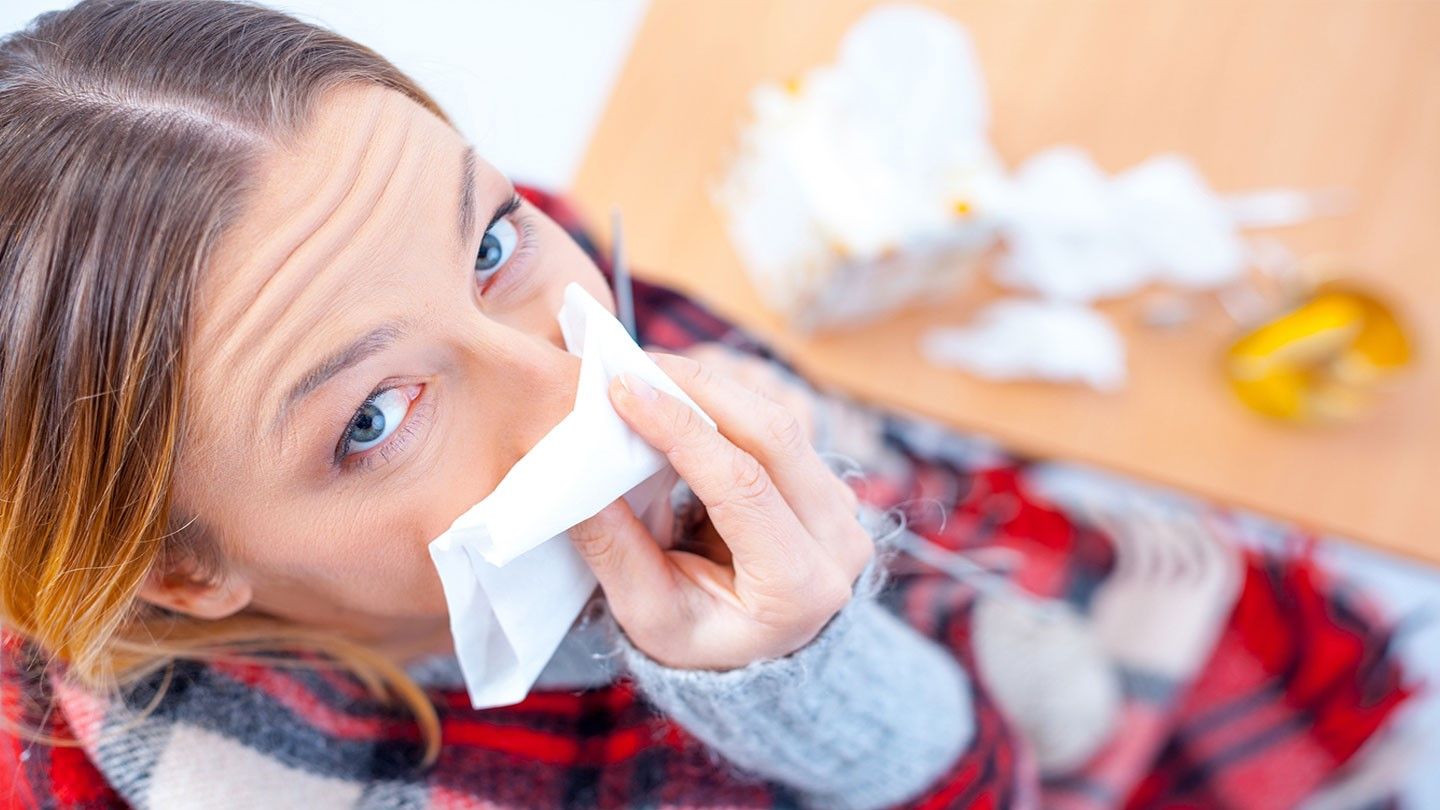Understanding Mucus and Swallowing It
Mucus plays an important protective role in our bodies, but is swallowing all that nose and throat mucus actually bad for you? The short answer is no - swallowing mucus is harmless and most people do it unconsciously multiple times per day.
What is Mucus?
Mucus is a slick, slimy substance the body produces naturally to lubricate and protect internal linings in areas like the lungs, sinuses, mouth, throat, stomach, and intestines. This viscous bodily fluid contains the following components:
- Water
- Infectious agents like bacteria and viruses
- Dust
- Cells
- Minerals
- Enzymes
- Antibodies
- Protein and lipids
Functions of Healthy Mucus
When working properly, mucus acts as an invaluable bodyguard against illness and harm. Benefits provided by this slimy secretion include:
- Trapping germs, debris, and dirt
- Preventing infection
- Moisturizing passageways
- Allowing particles to move freely
- Protecting tissues from damage
Is Swallowing Mucus Unhealthy?
With mucus playing such a vital role, should you worry about accidentally swallowing it? Not at all - in fact, people swallow nasal mucus constantly without even realizing it. Here's why ingesting mucus is harmless.
Mucus Ends Up in the Stomach
Mucus drainage from the sinuses often trickles down the throat and gets swallowed. The same goes for mucus coughed up from the lungs. Upon reaching the stomach, digestive enzymes simply break the mucus down like other proteins. So mucus gets harmlessly degraded into basic particles to provide nutrients.
Prevents Infection Spreading
Swallowing mucus actually helps prevent transmitting infections from the sinuses or throat to others. So if you feel mucus dripping down your throat when battling a cold or other virus, letting it follow the body's natural course into the stomach stops further spreading.
No Harmful Bacteria Reach Intestines
Some mucus contains potential disease-causing bacteria and viruses. But stomach acid eliminates any infectious organisms, preventing intestines from getting exposed to contagious pathogens. Swallowed mucus cannot lead to intestinal invaders or gastrointestinal issues.
When Swallowing Mucus Becomes Problematic
While ingesting mucus itself seems distasteful but causes no harm, some symptoms involving excessive mucus warrant medical attention. Talk to your doctor if you experience:
Persistent Coughing Up Mucus
Coughing that lasts over a month with consistent thick, colored mucus brought up from lungs could mean pneumonia or other respiratory infections requiring antibiotics or further evaluation. Chronic mucus coughs can also result from smoker's lung, asthma, or bronchitis.
Excess Mucus Production
Producing copious mucus nonstop rather than normal intermittent secretions may result from irritation and inflammation. Possible causes behind too much mucus include allergies, polyps, cystic fibrosis, or autoimmune disorders.
Changes in Mucus Color or Texture
While clear mucus is normal, colored discharge or mucus that becomes darker, thicker, chunkier, or very watery could indicate issues. Yellow, green, or brown phlegm might mean respiratory infection. Examine lifestyle factors too like smoking, pollution, or diet.
Blood Present in Mucus
Coughing up mucus tinged with scarlet blood spots or controlled by streaks of fresh red blood needs rapid investigation. Potential causes range from lung trauma and clots to cancers.
Tips for Healthy Mucus Control
To keep mucus production at normal levels, try these self-care suggestions:
Hydrate Frequently
Drinking more water, especially hot, helps thin out mucus consistency for improved flow. Proper hydration also lessens irritating coughs caused by thick, sticky phlegm sticking to airway walls.
Rinse Sinuses
Saltwater nasal irrigation using a Neti pot flushes out excess mucus and soothes inflamed nasal passages. Rinsing prevents complications like sinus infections while enabling freer breathing.
Take Guaifenesin
Mucinex tablets contain the cough expectorant guaifenesin, which liquefies bronchial secretions. This allows more productive coughs for easily expelling phlegm-blocked mucus plugs from lungs.
Use Steam Showers
Inhaling warm, moist air during steamy showers helps loosen and clear unpleasant congestion. The heat also decreases inflammation causing excess mucus responses.
Avoid Irritants
Prevent excess mucus flow by minimizing contact with triggers like smoke, dust, pollution, chemicals, mold, and strong scents. Wearing filtration masks in compromised environments also helps.
When to Seek Emergency Care
While routinely swallowing mucus lacks health hazards, pursue prompt medical intervention when also experiencing worrying symptoms like:
- Severe problems breathing
- High fever with phlegm and chills
- Uncontrolled mucus vomiting
- Face pain and pressure with discharge
- Blood-tinged sputum
- Weakness, dizziness, or confusion
Rapid worsening respiratory distress alongside excessive mucus requires hospital evaluation to determine if pneumonia, pulmonary embolism, or other serious illness is present and to prevent grave complications.
FAQs
Is it unhealthy to swallow mucus?
No, swallowing mucus is not unhealthy. Mucus drainage often trickles down the throat and into the stomach where it gets harmlessly broken down by digestive enzymes like other proteins.
Why does my throat feel full of mucus?
Excess mucus production from the sinuses, lungs, or allergies can cause a feeling of thick phlegm in the throat. Staying hydrated, using steam, and taking expectorants can help loosen up the mucus so you can clear your throat.
What causes excessive mucus?
Too much mucus beyond normal levels often results from irritation and inflammation in the sinuses or lungs. Common culprits include allergies, respiratory infections, chemical fumes, smoking, autoimmune disorders, lung diseases, polyps, or cystic fibrosis.
When should I worry about mucus?
See your doctor if you have a mucus cough lasting over a month, produce excessive mucus daily, or notice bloody phlegm or radical changes in mucus color, texture, or thickness as these can indicate infection or health conditions.
How can I control excess mucus?
Tips to minimize troubling mucus include staying hydrated, rinsing sinuses, avoiding irritants like chemicals and smoke, using cough medicine with guaifenesin, and inhaling steam from hot showers to loosen secretions.
Disclaimer: This article is for informational purposes only and does not constitute medical advice. Always consult with a healthcare professional before starting any new treatment regimen.
Related Coverage
Is it safe to use Advil Cold and Sinus together with NyQuil? Understand the potential interactions and risks of doubling up on these common cold medicines....
Seeing mucus or phlegm in the back of the throat is common but can signal infections, allergies, smoking, weather changes, etc. Learn reasons for mucus, when to seek care....
Honey remains a top natural cough remedy for fast relief day or night. Keep a jar handy to instantly soothe sore throats, reduce coughing fits, allow restful sleep....
Excess phlegm and mucus can be caused by allergies, infections, smoking, GERD, and other issues. A combination of home remedies and medical treatment can provide relief....
Organic cough remedies like honey, ginger tea and eucalyptus provide soothing relief without dyes, alcohol or additives. Learn to make your own organic cough medicine....
Answers to common questions about managing migraine headaches naturally with herbs, vitamins, supplements and lifestyle adjustments for prevention....
Taking ibuprofen together with Dayquil can exceed the daily acetaminophen limit and lead to liver damage. Learn safe alternatives for cold symptom relief....
The mind-body connection reveals how our thoughts and emotions manifest physically. Learning this language of the body enables deeper self-understanding and harmony....
Learn how over-the-counter medications like Advil and Nyquil work to relieve common cold symptoms. Discover key differences between these options to help treat sore throats, congestion, coughs, and more....
Dealing with a persistent tickle or irritation in your throat? Try various home remedies and over-the-counter medications to soothe throat inflammation and irritation....









